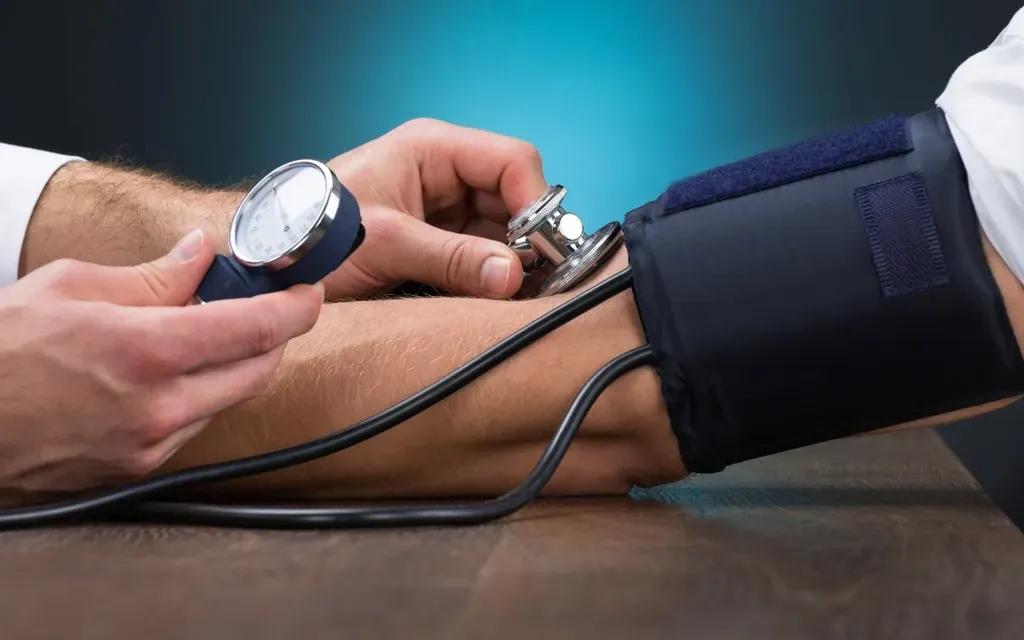
The Dangers of High Blood Pressure
High blood pressure, aka hypertension, is called a “silent killer” because it often produces no or very subtle symptoms until you hit a major crisis. While blood pressure normally rises and falls during the day, if it stays too high for too long, it can cause serious health complications, including an increased risk for heart, brain, and kidney diseases, and even death.
The CDC reports that hypertension was a primary or contributing cause of death in 2020 for more than 650,000 people in the United States, and what’s worse, only 24% of those living with it have it under control. And the World Health Organization estimates 46% of adults who are hypertensive are unaware of their condition.
At Broadway Family Clinic in Pearland, Texas, board-certified family physicians Dr. Kashif Siddiqui and Dr. Sumera Muzaffar know how important controlling high blood pressure is, which is why they not only take a reading each time you come into the office, but they also educate patients on the dangers of hypertension and how you can control it. Here’s what they want you to know.
What the numbers say about your blood pressure
Your heart contains a series of arteries that take oxygen-rich blood from the organ and deliver it to your body’s tissues. Blood pressure measures how much force that blood exerts on the arteries’ walls during its journey.
To take a measurement, we use an inflatable cuff that encircles the upper arm; it may be attached to a device that automatically tightens and loosens the cuff, or the doctor may use a stethoscope to take the reading manually. It’s a completely noninvasive, painless process.
As the cuff squeezes tightly around the arm, it restricts blood flow completely. Then it slowly releases the pressure. Once the machine detects blood flow starting to resume, it provides the systolic reading, the blood’s force against the artery walls as the heart is beating. Once blood flow returns to baseline, it provides the diastolic reading, the pressure between heartbeats.
The two are combined to produce your blood pressure measurement: 120mm Hg or below systolic and 80mm Hg or below diastolic is a healthy blood pressure for an adult. If your measurement is 120-129 systolic and below 80 diastolic, the reading is considered high, though not alarmingly so. If you’re in the range of 130-139 systolic or 80-89 diastolic, you have high blood pressure (stage one hypertension). If it’s 140 or higher systolic or over 90 diastolic, you’ve got stage two hypertension.
Primary versus secondary hypertension
When the readings are high, the heart has to work harder to pump the same amount of blood. The increased force can damage the blood vessels, as well as the kidneys, eyes, and even the brain.
People who have primary hypertension usually also have high blood cholesterol, a waxy fat that’s used to make cell membranes, among other things. Too much cholesterol, though, along with other fats, proteins, calcium, and cell debris, forms a sticky plaque in the arteries. This narrows the conduit, leading to atherosclerosis (“hardening of the arteries”) and coronary artery disease, which increase your risk for heart attack and stroke. Primary hypertension develops over years, though it’s mostly asymptomatic.
People with secondary hypertension develop the condition more quickly, and it’s usually due to other health problems, including:
- Obstructive sleep apnea (OSA)
- Thyroid disease
- Adrenal gland tumors
- Congenital heart defects
- Kidney disease
Cough and cold medicines, some pain relievers, cocaine, contraceptive pills, and amphetamines are additional causes of high blood pressure.
Subtle signs of hypertension
While it’s rare to have warning signs of hypertension until you develop a major problem, there are some subtle signs that may warrant a trip to the doctor. These include:
- Early morning headaches
- Nosebleeds
- Irregular heart rhythms (arrythmias)
- Vision changes
- Buzzing in the ears (tinnitus)
Advanced hypertension may cause fatigue, nausea, vomiting, confusion, anxiety, chest pain, and muscle tremors. Any of these symptoms means you need medical help as soon as possible.
What are preventable factors for hypertension?
Most causes of hypertension are closely linked to lifestyle factors, which can be modified to prevent the problem from developing. These include:
- Reducing sodium intake
- Eating a balanced diet, with lots of fruits and vegetables
- Exercising regularly (30 minutes a day, moderate intensity)
- Refraining from tobacco use
- Reducing alcohol consumption
- Limiting foods high in saturated fats
- Eliminating/reducing trans fats
Not sure what your blood pressure is or if you’re at risk? Then it’s time to come into Broadway Family Clinic for an easy blood pressure test, as well as medical advice for how to keep your pressure down. To get started, give our office a call at 346-857-0603, or book online with us today.

